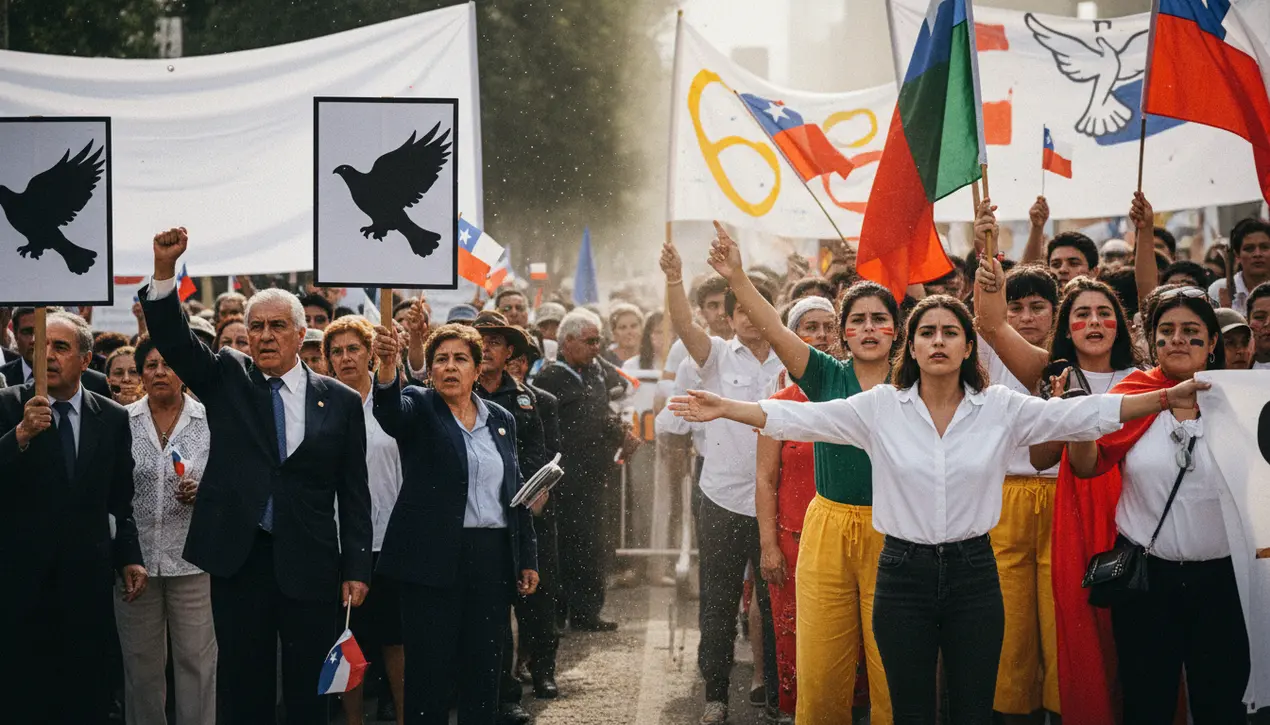
PoliticselectionsPresidential Elections
Chile's presidential run-off pits far-right against communist candidate.
RO
Robert Hayes
2 hours ago7 min read
The political landscape of Chile has been irrevocably cleaved, setting the stage for a December run-off that is less an election and more a fundamental referendum on the nation's soul. On one flank stands José Antonio Kast of the Republican Party, a far-right stalwart whose rhetoric echoes the pinched, law-and-order doctrines of a bygone era, his platform a stark bulwark against progressive change.Arrayed against him is Jeanette Jara of the Communist Party, a figure representing the most potent strain of the leftist coalition that has governed since the 2019 social uprising. This is not merely a choice between candidates; it is a choice between two diametrically opposed visions for Chile's future, a schism that recalls the ideological battles that have historically defined Latin American politics.The first round of voting served as a brutal clarity, revealing a populace deeply fractured and disillusioned with the centrist consensus that has characterized much of the post-Pinochet transition. Kast’s strong showing, built on a foundation of anti-immigrant sentiment, economic liberalism, and a nostalgic appeal for stability, tapped into a deep-seated anxiety among segments of the electorate.His promise to roll back the ambitious, if contentious, process of drafting a new constitution resonates with those who view the current upheaval as a threat to the established order. Conversely, Jara’s advancement signals the enduring power of the social movements that demanded a new charter in the first place, championing a platform of expanded social rights, greater state intervention in the copper-rich economy, and a definitive break with the neoliberal model entrenched during the dictatorship.The historical parallels are stark and unsettling; the nation seems poised to repeat the cycle of polarization that has so often led to instability in the region. The coming weeks will be a grueling test of political strategy, where the battle for the crucial moderate vote—those who supported more centrist candidates now eliminated from contention—will determine the outcome.Analysts are already drawing comparisons to other global populist surges, noting how Kast’s campaign mirrors tactics seen in Europe and North America, while Jara’s represents a resurgent, organized left. The international community, particularly neighboring Argentina, Peru, and Brazil, watches with bated breath, aware that the result will ripple across the continent, influencing everything from trade policies to regional alliances.The stakes could not be higher: the victor will not only lead a nation grappling with profound social and economic inequality but will also steward the final, fragile stages of its constitutional rebirth. This is Chile’s moment of reckoning, a choice between a past it thought it had escaped and a future whose contours are still dangerously undefined.
#Chile
#presidential election
#run-off
#José Antonio Kast
#Jeanette Jara
#far-right
#Communist Party
#featured
Stay Informed. Act Smarter.
Get weekly highlights, major headlines, and expert insights — then put your knowledge to work in our live prediction markets.
Related News
Comments
Loading comments...
© 2025 Outpoll Service LTD. All rights reserved.